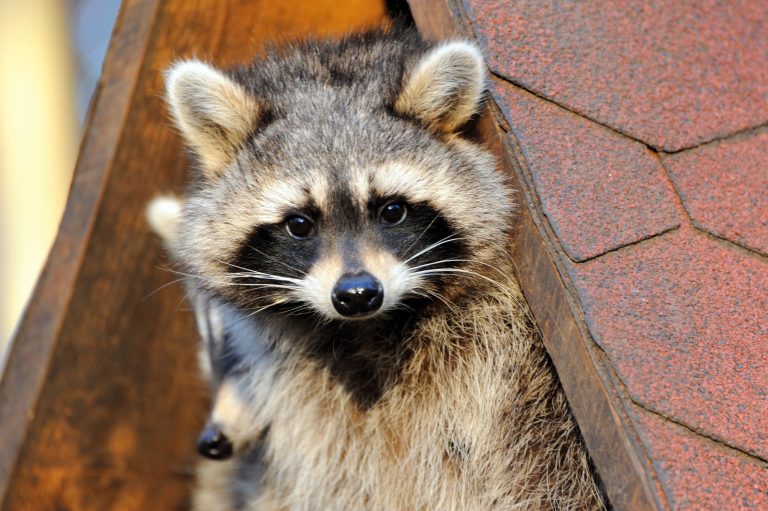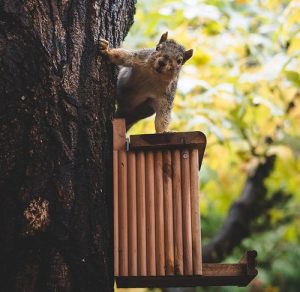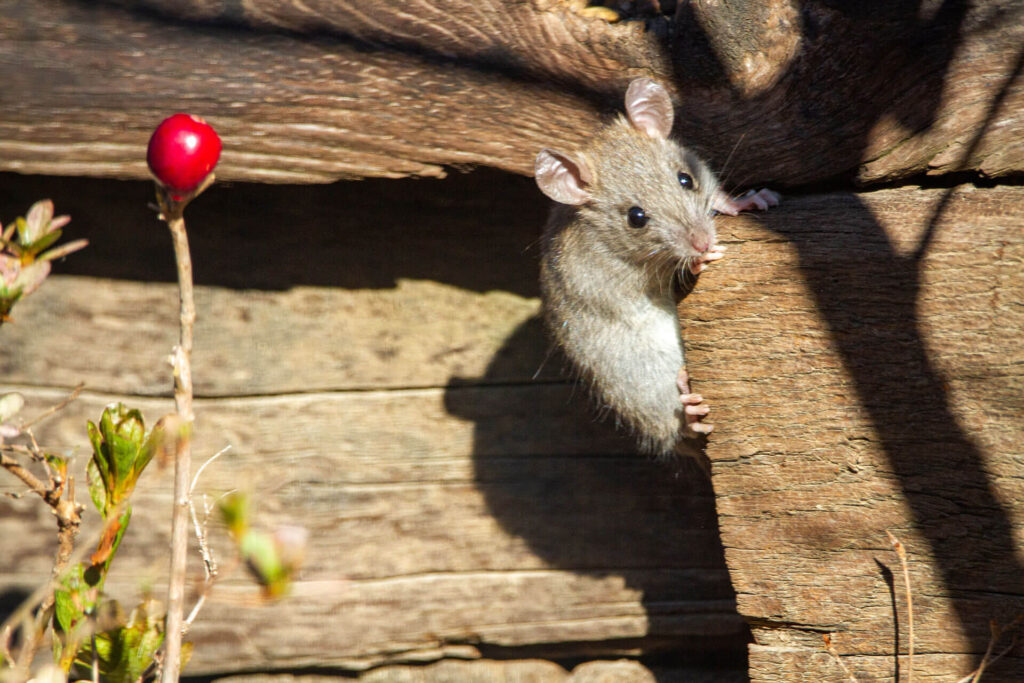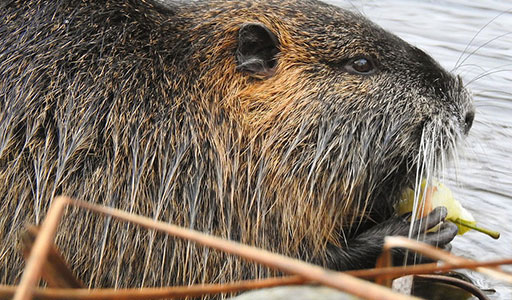As winter approaches, some animals start behaving very differently: some hibernate, some enter a state called torpor, and others experience a process known as brumation. Some animals, like squirrels, do not hibernate but simply fatten themselves up in the fall and store food for months of relative inactivity.
Regardless of how an animal approaches winter, all animals will need some type of shelter. Your home provides warmth and shelter from winter weather. So it is not uncommon to hear animals in your attic or find evidence in your crawlspace of nuisance wildlife.
Wildlife Hibernation
Hibernation vs. Torpor vs. Brumation
All of these phrases describe different ways animals sleep or conserve metabolic energy, but there are a few key differences between them:
- Hibernation is the condition or period of spending the winter in a dormant state, characterized by a steep reduction in metabolic rate, heart rate, and respiratory rate.
- Torpor is different from hibernation in that can be very short in duration—even as short as one night—depending on the needs of the animal, whereas hibernation is more prolonged.
- Brumation only happens to cold-blooded animals or ectotherms. It is a period in which reptiles’ growth, development, and physical activity are stopped. It is usually triggered by shorter days, lower temperatures, and barometric pressure changes. It is more a period of sluggishness and inactivity than a true “sleep.”
Do Raccoons Hibernate?
Raccoons do not hibernate. They are active year-round.
Raccoons may be less active during the winter because some raccoons–especially those in northern states–store up body fat in the spring and summer in order to be able to spend more time in their dens when temperatures drop.

During this time, Raccoons like to take refuge in warmer places—and are reluctant to change dens—so there’s a possibility a group (or “gaze”) of raccoons might move into your attic or crawl space. Raccoons are true omnivores, which means they eat just about anything, but they prefer to live near water where much of their desired prey live, such as frogs and crayfish.
Do Bats Migrate or Hibernate?
Depending on the species, bats will either migrate or hibernate during the winter.
According to the National Park Service, some species, like the little brown bat, may hibernate for around six months while awaiting the return of insects in spring, while other species–usually those that roost in trees, such as hoary bats–migrate south for the winter while insects are scarce.
During hibernation, bats enter torpor for a prolonged period. Their heart rate plummets from 200-300 beats per minute to a mere 10 beats per minute. They may go minutes without taking a breath, and their body temperature may drop to near freezing. These elements of torpor greatly reduce a bat’s need for food, allowing them to remain in torpor for over a month while hibernating
Bats prefer to hibernate in dark, humid areas like caves and mines. When these areas are unavailable, bats are likely to choose human structures like barns, sheds, chimneys or even attics. Sometimes hibernating bats wake up and their bodies go out of torpor. If this happens, they require food to replace lost fat stores. It is under these circumstances that you’re most likely to see a bat flying around your home in the winter–it’s probably looking for a meal.
Do Squirrels Hibernate?
Squirrels do not hibernate.

Squirrels are homeotherms, meaning that their body temperature stays fairly consistent throughout the year. As winter approaches, squirrels hoard calorie-dense food items like nuts and seeds, usually by digging a shallow hole and covering it up. In addition, they make a point to maximize food consumption and body mass throughout the fall in order to have some fat reserves for those winter months when food is in short supply.
Squirrels stay in nests or dens all year round, but a warm nest is especially valued in winter months. Typically, squirrels build their nests in trees out of twigs and leaves and often use cavities in trees left over from woodpeckers as dens. Squirrels might also find your attic, shed, or garage a perfectly suitable place to hole up for the winter.
Do Snakes Hibernate?
Snakes do not hibernate; they enter a state called brumation.
Brumation is similar to torpor, in that it involves a severe reduction in food intake and metabolic rate. Because snakes are cold-blooded reptiles, they cannot control their metabolic response to temperature changes. When it gets cold, they know to get underground.
During brumation, snakes seek out an underground area—called a hibernaculum—that isn’t much affected by surface temperature changes.
According to the Chicago Academy of Sciences, It’s not uncommon for several hundred to several thousand snakes to brumate together in one hibernaculum. If snakes can’t find a natural area underground in which to brumate, they may turn to above-ground structures like mulch piles, railroad embankments, or basements. Since snakes don’t eat during brumation, they must eat a lot of food before taking to the underground.
Do Rats Hibernate?
Rats do not hiberate.
Both rats and mice are also excellent diggers and will burrow into the ground if they don’t have access to human dwellings or caves.
Rats prefer nesting in a warm building, where there is protection from predators and an ample supply of building materials for nests. If they manage to establish a nest under such conditions, rats can remain very active during the winter.

But rats’ fondness for human property doesn’t stop with our buildings. Rats are also drawn to our vehicles, finding the various hiding places and heat from the engine particularly inviting.
Rats are famously indiscriminate when it comes to their diet—they are even known to eat garbage. Some of rats’ favorite foods include bird seed, pet food, nuts, paper, fabric. Much like squirrels, rats tend to drag their findings back to their nests to be able to eat later. Some infestations can be solved by taking steps to deprive rats of food sources (like securing pet food in rodent-proof containers and taking bird feeders down when it gets chillier).
Do Mice Hibernate?
Mice do not hibernate and remain quite active in the winter.
If outdoors, they will burrow into the ground to survive the elements. Mice willingly nest in human structures, as they are warm, replete with material for nests, and safe from predators.
Within homes, mice nest in areas that humans don’t frequent, like wall voids, attics, and crawl spaces. Even areas that aren’t temperature controlled, like garages and sheds, offer substantial protection from the elements. Like most rodents, mice hoard material.
They will create large caches of food near their nests, so they are able to feed throughout the winter without having to leave their nests very often. Mice typically eat grains, fruits, and seeds. Eliminating easy access to food can help prevent a mouse infestation.
Do Chipmunks Hibernate?
Chipmunks do not hibernate!
You will rarely see these rodents during winter. They avoid cold winter conditions in a state of rest. Throughout the cold weather, chipmunks try to conserve energy. From late fall to early spring, the rodents spend the majority of their time sleeping underground. But on warm days, chipmunks may wake up to forage for food outside.
Do Beavers Hibernate?
Though they rarely leave their lodges once the temperatures drop, beavers do not hibernate. However, they do prepare carefully for the colder months. Beavers gather vegetation to store in underwater caches, so they can eat without needing to forage throughout the winter.
Beavers are significantly less active in cold weather. With plenty of stored food and the security of a strong dam, they can conserve their energy from late fall to early spring. Beaver dens are the key to their winter survival.

Nuisance Wildlife Problems in the Winter
As temperatures drop, animals start to prepare for winter. Some will migrate for warmer temperatures. Most will store food or eat more to gain fat. Almost all of them will need a safe, warm place for shelter.
Human dwellings are even more attractive to certain animals in the winter months, so it’s important to remain vigilant on this front and ensure that your house doesn’t become a wildlife sanctuary. If you suspect any of these animals may be living in your house, contact Trutech Wildlife for a thorough examination of the issue.


